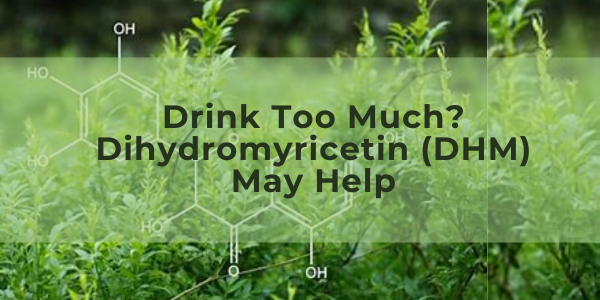
In today’s pursuit of health and natural remedies, many plant-derived compounds have gained attention for their potential benefits. Dihydromyricetin (DHM), also known as ampelopsin, is a flavonoid found in various plants, particularly in traditional Eastern herbs like vine tea and bayberry. This article explores its sources, structure, health benefits, applications, and safety.
1. Sources and Structure of Dihydromyricetin
DHM is primarily found in:
- Vine tea (Ampelopsis grossedentata) – The richest natural source, commonly found in southern China.
- Tea leaves – Present in some varieties, especially lightly fermented teas.
- Other plants – Trace amounts exist in grapes, apples, and citrus fruits.
- Chemically, dihydromyricetin is a flavonoid (C₁₅H₁₂O₆) with unique bioactive properties, including antioxidant, anti-inflammatory, and anti-alcohol intoxication effects.
2. Health Benefits of Dihydromyricetin
- Antioxidant effects – Neutralizes free radicals, slows cellular aging, and may reduce oxidative stress-related diseases.
- Liver protection – Supports detoxification and reduces alcohol-induced liver damage.
- Anti-inflammatory properties – Inhibits inflammatory factors, potentially aiding arthritis and other inflammatory conditions.
- Blood sugar & lipid regulation – May help manage diabetes and atherosclerosis.
- Neuroprotection – Could enhance memory and protect against neurodegenerative disorders.
3. Applications of Dihydromyricetin
- Dietary supplements – Used for immune support and liver health.
- Pharmaceutical research – Investigated for treating alcohol intoxication, hepatitis, and inflammation.
- Food preservative – Extends shelf life due to its antioxidant properties.
- Cosmetics – Incorporated for anti-aging and skin protection.
4. Safety and Side Effects
DHM is generally safe at moderate doses, but considerations include:
- Dosage control – High intake may cause nausea or diarrhea.
- Drug interactions – May affect liver-metabolized medications; consult a doctor before use.
- Allergic reactions – Rare but possible in sensitive individuals.
Conclusion
Dihydromyricetin, a natural flavonoid, shows promising health benefits, from antioxidant effects to liver protection. Further research may expand its applications in medicine and wellness.
